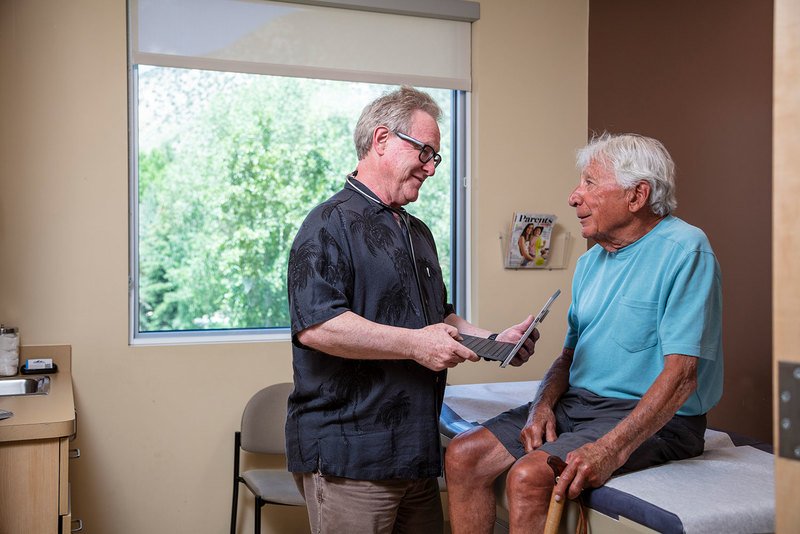News
Aging Immune System

We are living in the “after” times. Before COVID-19, immunology was hardly an armchair science. Before COVID-19, we weren’t concerned about infection. Before COVID-19, we didn’t have to keep track of our immune systems. Now we know better. We know that we rely on our immune systems just like we rely on our cardiovascular or digestive systems. We know that external factors—such as stress or inactivity—can affect our immune performance. And we know that our immune cells, just like every other cell in our body, can age.
The aging process of the immune system is called immunosenescence. Just as our skin loses elasticity over time, or our hair follicles stop producing pigment cells, so too do we lose function of our immune system. When our immune system ages, we may notice that wounds take a longer time to heal. We typically also have a harder time fighting off infection, which can be experienced both as getting sick more often and as being sick for a longer period of time. Our immune system also acts as a cancer prevention system; it detects and destroys malfunctioning cells before they can develop into cancer. Immunosenescence is a key player in the development of cancer.
A healthy immune system has two components: innate immunity and adaptive immunity. The innate system is made up of a set of immune cells and inflammatory responses that act as a general defense against infection. Running a high fever as a response to strep throat is an example of the innate immune system. The innate system is effective, but can also cause damage to our own cells in its quest to fight off infection. On the other hand, adaptive immunity is a learned response to infection. Adaptive immunity is much more precise, building specific tools to fight specific infections. Antibodies are the star performers of the adaptive system. The adaptive system ages faster than the innate system. Our bodies can “forget” that they have seen intruders before. One example of this is the chicken pox virus. We typically are only sick with chicken pox once. When our body has defeated the virus, it stays with us but doesn’t cause any trouble. That is because our bodies make antibodies against the chicken pox virus. This keeps it at bay for decades. But then, as our immune system ages, our body can forget its chicken pox defenses. This allows the virus to become infectious again as an outbreak of shingles.
Several factors influence how quickly our immune system ages: genetics, lifestyle and luck. However, to paraphrase Louis Pasteur, “Chance favors the prepared.” Regular preventive care can help minimize the effects of time on the immune system.
One of our best tools is vaccination, an intervention that Mr. Pasteur helped modernize. A vaccination presents a disarmed version of an infectious disease so that our body can “remind” our adaptive immune system without having the collateral damage from the innate immune system. Vaccines can act as “most wanted” posters, helping our bodies identify the most dangerous criminals: pneumococcus, influenza, pertussis, RSV and COVID-19.
Regular cancer screenings also become more important as we age. As the immune system ages, it can overlook malfunctioning cells. Mammograms, colonoscopies and annual skin exams are important tools to help with early detection. An ounce of prevention is certainly worth a pound of cure.
Lifestyle is often our most potent preventive intervention. Just as a rolling stone gathers no moss, regular cardiovascular activity helps keep our immune system sharp. Studies have shown that at least 30 minutes of moderate aerobic exercise helps with lymphocyte circulation (a key component of the adaptive immune system) and with modulating inflammatory responses (important to the innate immune system). Patients see benefits from regular exercises whether they are in their 60’s or in their 90’s.
The fuel that we choose for our bodies also has important effects. We know that sugars and alcohol can lead to oxidative stress on the body. This actually speeds up the aging process. Brightly colored fruits and vegetables are rich in antioxidants. These are chemical compounds that help the body clear itself of the chemicals that can cause oxidative stress. These same brightly colored fruits and vegetables are also rich in vitamin A, vitamin C and vitamin E, all of which help support the immune system. Patients often ask about supplements to help support immune system. A healthy, varied diet can supply all the micronutrients needed by the body. Additional supplements can help fill gaps if needed. Generally, the micronutrients that have been most closely tied to the immune system are vitamin A, vitamin C, vitamin D, vitamin E, selenium and zinc. It is important to note that all of these, with the exception of vitamin C, are not water-soluble. This means that it is possible to have too much of them in your system. Following the labeling instructions or limiting yourself to dietary sources can help avoid overdosing.
All of these facets of our health can come together to help support the immune system as it ages. Each of these are tools that you can use to optimize your health. Navigating this can sometimes feel daunting, but remember, you are not alone. Your primary care physician is here to help.
About Dr. O'Meara:
Board certified in Internal Medicine, Dr. Melissa O'Meara has a broad interest in patient care. She excels at complex care, chronic condition management and women's health, with a special focus on substance abuse treatment and chronic condition management. Her care philosophy is one of knowledge sharing in order to empower patients to make the best decisions for their own health.
LEARN MORE >
More News
-
More

Vail Health to Create Behavioral Health Innovation Center (BHIC)
Charles Raison, MD, named Director of BHIC Vail Health announced that it is...
-
More

Colorado Mountain Medical relocates several specialty clinics to Avon
Dermatology, endocrinology, ophthalmology and urology have a new home on the third floor of the Buck...
-
More

Where to Go for Care
Distinguishing between primary, urgent and emergency care can make all the difference ...
